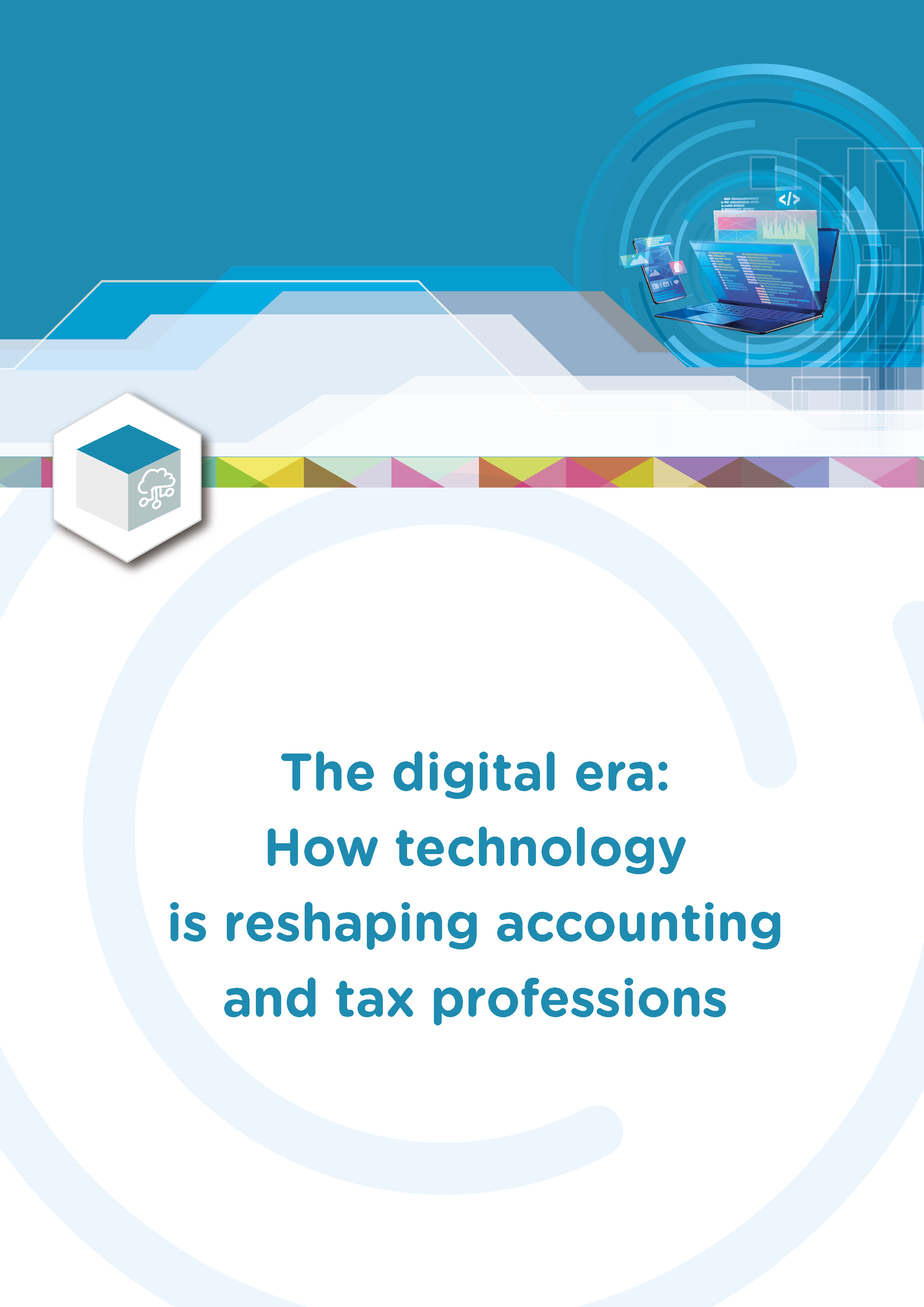
The digital era: How technology is reshaping accounting and tax professions
The digital era: How technology is reshaping accounting and tax professions

- Starting date 21 April 2022
- Duration 28 hours
-
Location
Maison du Savoir
2, avenue de l’Université
L-4365 Esch-sur-Alzette
- Language Anglais
- Price (excluding VAT) 1100.00 €
Training Context
There is no denying that digital transformation will have an impact on accounting and tax professions. This impact of emerging technologies is often feared by the professionals. Providing insights on the changes to come and on the benefits to be gained by accepting them is thus the main focus of this new training. With the proper skills, become the accounting and tax professionals businesses will need tomorrow.
Goals
The purpose of this training is to help accounting and tax professionals accept the fact that digitalisation is happening and that it is changing their work. This change however is not be considered a threat, rather an opportunity. Participants will be guided towards understanding what technology can be used and how in order to have a positive impact on their clients and their work.
At the end of this course, participants will be able to:
- Understand major trends in technology
- Develop skills essential for the new accountants and tax specialists
- Embrace the changes in the work environment and understand why they are needed (their benefits)
In addition, participants will have reinforced personal skills:
- Analysis
- Critical thinking
- Pitching
Training Content
The training will take place from 21 April to 19 May 2022, every Thursday from 1 pm to 5pm.
In order to validate the training, an exam session will take place onsite on 2 June 2022, from 9 am to 12 pm.
It is a so-called blended-learning training, mixing 8h of e-learning with 20h of onsite courses.
The content is divided into 3 parts, starting with a first part focussing on what digitalisation means for this line of work. You will then address solutions in part 2 and finally close with the last part on the new digital assets.
Part I: What is digitalisation?
- Origins and impact of digitalisation
- Impact on the evolution of the tasks requested (quality and control over quantity)
- Process of adoption of the new technologies, the Rogers curve
- What does digitalisation mean? When did it start and what are the trends?
- Taxonomy of the digital world: fintech, regtech, what does it propose, which needs do they answer
- The digitalisation of the governmental bodies: what are the portals allowing online procedures/filings? The role of the ministry of digital
- What are the new technologies? What is their use (pros and cons of it)?
- Blockchain: How does it work? What are the advantages and disadvantages? What is its use?
- Cloud computing: how does it work? Why is it extensively used in accounting and taxation?
- Artificial Intelligence/Robot Process Automation (RPA): How Artificial Intelligence can be used to help with data analytics and the reduction of mechanical tasks removing the process with low added value
- Big Data/Data Analytics: The power of data and the extraction of information by the analysis of data flow. How to use data to forecast and produce insightful reporting?
- Digital Assets: What is a digital asset? How is it created? What is tokenisation?
- Law/Regulations
- Regulation for e-signature (e-Idas) and electronic documents
- What is the legal framework around Blockchain?
- Cloud legislation
- Challenges and advantages of digital
- Analysis of the challenges and advantages brought by the digitalisation and how to mitigate?
- Change management
- Database maintenance/procedure/good practices/golden source
- Access Management
- Collaboration cross department
- Digital documents: storage, safety and how to manage them
- Central management
- Audit trail, how to use it efficiently
- Workflow management: what is it, how to create an efficient one
- The rise in “Suite”, the accounting and taxation tool as part of a whole system
- Avoiding duplication
- Analysis of the challenges and advantages brought by the digitalisation and how to mitigate?
Part II: Existing solutions (1 solution/area for a total of 2 solutions)
Presentation of existing solutions: demo and trial. Organised in workshops with practical cases.
Innovative solutions, answering the needs of big companies to SMEs.
- Digital accounting
- Potential solutions: SAP, Zoho, Caseware, Gesall, Denarius, …
- Digital Taxation
- Potential solutions: FiTAX, easytax, Domos FS, Gesall (eCDF, FAIA), eFiscalease
Part III: Accounting and taxation of the new assets (digital assets)
- Knowledge session on the accounting and tax treatment of digital assets in Luxembourg
- Comparison to International treatment
+ Exam Session
Teachers
- Project Lead, Luxembourg Blockchain Lab
- She has more than 10 years’ experience in the area of tax law, regulations, IT, consulting, fintechs and blockchain
Share this training on :
